Let's Talk
- About Characters in the story: We can compare the traits of the merchant, the tiger, the bull, and the rabbit. We can deduce what distinguishes them through their behaviour.
- About the Concept of justice and fairness: Does doing good always bring good in return? We might initially think that the good deed the merchant did for the tiger would lead to a disaster, but the cleverness of the rabbit shows us a different outcome. What can we conclude?
- About the Trust: A simple word that can be expressed through feelings, thoughts, and actions. We can recall people we trust deeply. How did that trust develop?
- About experiences from our lives: Have we done a good deed and offered help to someone? We can recall experiences from our lives where we received help or provided it.
Let’s Enrich our Language
- New words and vocabulary: We can familiarize ourselves with unfamiliar words and understand their meanings.
- Punctuation marks: We can observe question/exclamation/quotation marks. What do they mean?
- Proverbs and sayings: We can search for proverbs, sayings, and admonitions that talk about doing good, justice, caution, and other meanings that captivate us.
Let's Create
- Role-playing: Each of us plays the role of one of the story’s characters. We can think about their situation, feelings, and expressions.
- Courtroom game: We can choose situations from our daily lives, and each of us can play a role in defending a different position. Who among us is the judge/accused/lawyer? Who supports another character?
Let's Explore
- Nature: We can go on a hike to the nearby nature. Which trees do we notice? What animals might we encounter? We capture natural scenes and compile them as a memory of our enjoyable outing together.
- Animals around us: Are there any pets in our neighborhood looking for shelter or food? How can we help them safely? (We might prepare a box for cat food or a bird feeder).
نُثْري لغتنا
الحكاية غنيّة بالمفردات اللغويّة الجميلة والجديدة (وادعة، تدهورت، أتروّى، هانئة، مضاءة)، نفسّرها لأطفالنا أثناء القراءة، ونحاول أن نستخدمها في سياق حياتنا اليوميّة.
نتمتّع
استخدمت الرسّامة عناصر بصريّة من ثقافاتٍ شرقيّة مختلفة. نحاول أن نخمّن مكان الحكاية وزمنها بالاستعانة بهذه العناصر.
Dear Parents
,Dear Parents
Did it happen to you that you really wanted something? what did you do? How did you deal with that desire? Who supported you?
Our rich book presents several topics and deals with them in a clever way through the plot. It first raises the issue of dealing with not getting our desires and wishes and how to cope with it, and how to deal with the frustration of our children.
It is important to give legitimacy to this feeling and to offer them the space to express it and not disregard it; Through this, the child will be able to deal with this feeling more effectively by looking for ways to overcome it. It is also important to support our children in developing the skill of patience and how to contain feelings of frustration, and to talk to them about our inability to get everything we want immediately. One of the ways that they can deal with and tolerate frustration is to use imagination, which is a partial fulfillment of our needs through envisioning, so that when the child’s desires are not fulfilled in life and in reality, they can simply imagine.
The book also presents a method for dealing with our desires and achieving them. Flexibility of thinking and developing the ability to search for other additional solutions, even if they seem difficult or almost impossible, is a great way to deal with these topics. It is important to also train our children to be flexible thinkers and to suggest alternatives, especially in real life situations.
:Let’s talk
About desires and wishes: Mountain wanted to see the sun, but he couldn’t. We can talk to our child about the things they want and desire: which things can they have, and which are hard for them to get? How do they feel? We can think together and suggest different ways to fulfill our desires.
Feelings: We can follow the drawings with our children and talk about the various feelings of Mountain and his friends. We can name them and ask the children about their causes, such as: feelings of frustration when he could not see the sun; feeling excited; Sympathy from friends. We can connect feelings to their effect on our behavior.
Solving problems: Mountain’s friends tried to deal with his problem by suggesting several solutions. We can talk with our children about the solutions that his friends have suggested and offer others that they have not. We can train our children to be flexible, creative outside-the-box thinkers.
Helping and Cooperating: Mountain’s friends sympathized with him and tried to fulfill his desire to see the sun. We can ask our children: Did anyone help them get something they wanted? Then we can also ask: Who supported them? How did they feel?
Let’s play and imagine:
We can choose an object, think outside the box, and suggest many uses for it beyond the well-known traditional use.
Let’s act and innovate
We can train our children to think flexibly by suggesting issues and problems that our child faces in daily life and searching for and acting out many solutions.
Let’s explore
We can go out to nature with the family to observe the mountains and witness their beauty and the life of the creatures living there.
!Enjoy your reading
Look through the...
Look through the book together and examine the unusual illustrations that accompany the text. Notice the various perspectives the illustrator used in creating these pictures. Which pictures show the action from above—and which from the side? Talk with your children and ask them why they think the illustrator chose to portray the events on the bridge as she did.
Sometimes, before we...
Sometimes, before we arrive at a good idea, we first have to try (and discard) some not-so-good ideas. Together with your children, go back over the various solutions which the bear and the giant proposed in the story. What are the upsides and downsides of each idea?
Do you remember...
Do you remember the game of “Golden bridge”? Stand opposite your child and hold both his hand high to form a bridge. Invite other family members and friends to pass under the bridge, while singing: “Oh Golden bridge, Oh golden bridge/ we all pass under you and someone will be caught”. Whoever is passing the minute you say “caught” is out.
Dear Parents
,Dear Parents
Mamba cannot howl like the rest of the wolves in the herd, so she decides to travel by train to her expert grandmother to learn how to howl. On the way, Mamba observes the behaviors of different animals, using their voices to alert the driver. When preparing to get off the train, she decides to imitate them and discovers that she can howl.
…Some suggestions for family activities on the book
learning a new skill
We can recall the experience of learning a new skill with our child, such as riding a bike, or crossing the street. What prompted him to learn this skill? Who helped him? How did he learn it? It is also nice to share with our child our experiences in learning skills such as using a computer or a mobile phone, etc.
We can talk with our child about the things that he can do (such as assembling a certain number of puzzle pieces, preparing simple food, etc.), and about the things that he wants to do and is not yet able to. We point out that many skills develop during the course of our growth, as well as with practice.
Mamba passes through countries of different colors, and we get to see the changing seasons of the year. What would an orange or lilac country look like? Our child may want to draw it.
The wolf howls, what do the cat, bird, dog, and other animals do? This is an occasion for our child to learn the sounds of familiar animals by playing a picture card game for example, or using animal dolls available at home.
Mamba goes to her grandmother, who will teach her to howl. What did our child learn from his grandmother or grandfather? What does he like to learn?
Do wolves really howl only when the moon is a full moon, as we see in the last illustration? Let’s search with our child for more facts about these exciting animals.
!Enjoy your reading
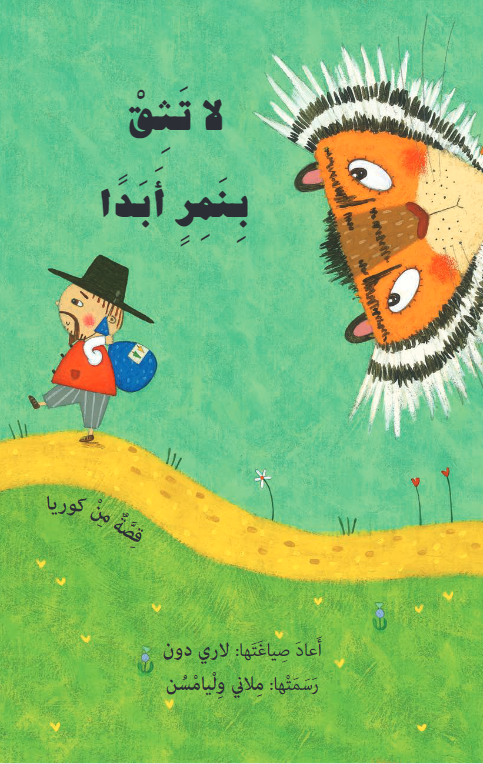 Don’t Trust the Tiger
Don’t Trust the Tiger 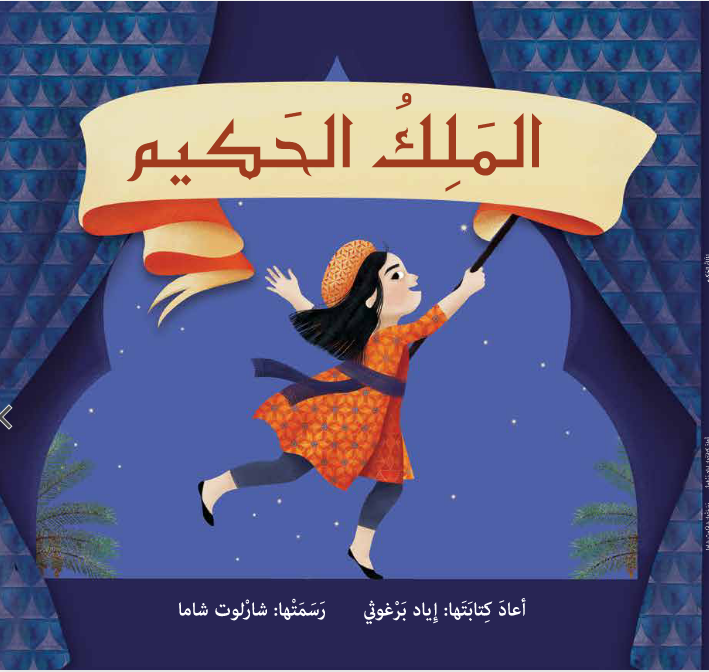 The Wise King
The Wise King 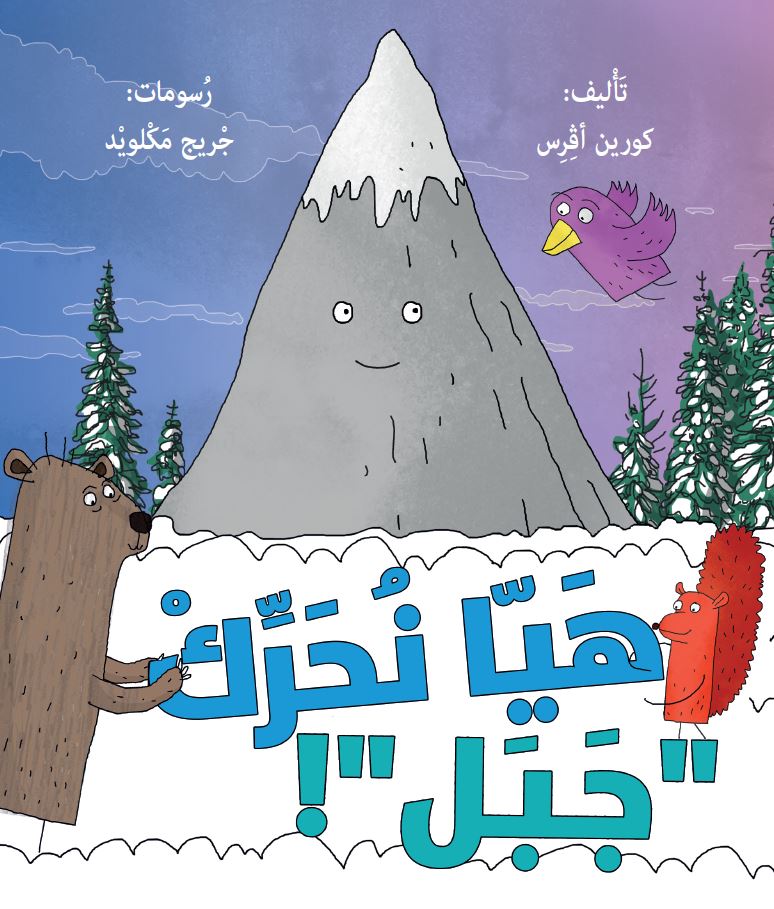 Move mountain
Move mountain 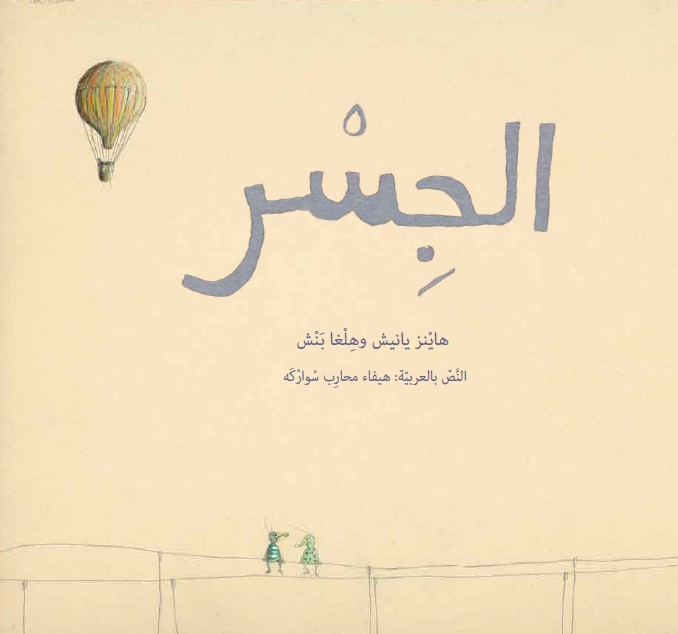 The Bridge
The Bridge 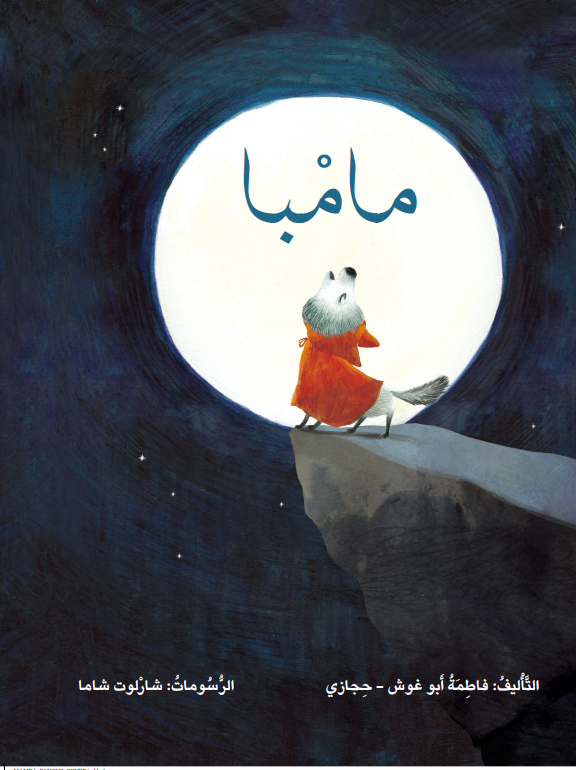 Mamba
Mamba 
